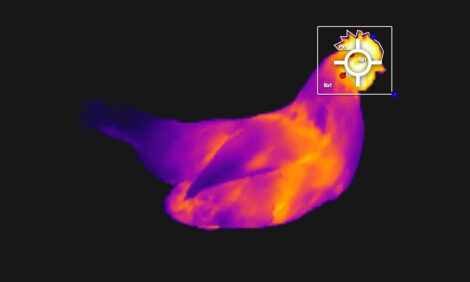



Gastrointestinal Morphology and Function in Turkeys Fed Diets Diluted with Whole-grain Wheat
Dietary supplementation with whole grain wheat improved gastrointestinal function and thus increased feed efficiency in turkeys up to 18 weeks of age, report researchers based in Olsztyn in Poland.The aim of a study published in Poultry Science was to verify the hypothesis that moderate dilution of turkey diets with whole grain wheat - up to 22.5 per cent - improves gastrointestinal function, thus contributing to sustained growth performance.
From the Polish Academy of Sciences, Z. Zdunczyk and co-authors there and the University of Warmia and Mazury report that they allocated a total of 900 male turkeys to five dietary treatments: basal diet (BD), BD diluted with low levels of ground and pelleted wheat or whole wheat, and BD diluted with high levels of ground and pelleted wheat or whole wheat (GH and WH, respectively).
At successive stages of the experiment, diets containing 5 and 15 per cent, 7.5 and 17.5 per cent, 10 and 20 per cent, 12.5 and 22.5 per cent of wheat in different physical form were fed to turkeys aged 5 to 8, 9 to 12, 13 to 16, and 17 to 18 weeks, divided into sub-groups with low and high dietary levels of wheat, respectively.
Dietary dilution with different levels of wheat did not reduce the bodyweight gain of turkeys and did not adversely affect feed conversion despite a decrease in the amino acid content of diets.
In comparison with BD, diet GH increased the thickness of the muscularis externa and the depth of caecal crypts (P<0.05), increased bacterial domain and decreased Salmonella counts (P<0.001), increased butyric acid concentrations, and decreased the levels of putrefactive compounds in the caecal digesta (P<0.001).
Also compared to BD, diet WH improved feed efficiency (P=0.002) and contributed to significant (P<0.01) changes in the parameters of gastrointestinal function, including lower pH of gizzard digesta, increased depth of jejunal crypts, lower ammonia concentrations and lower pH of intestinal digesta, increased total bacteria and Bifidobacterium counts and decreased Salmonella counts as well as greater concentrations of butyric acid and total short-chain fatty acids.
In comparison with diet GH, diet WH enhanced the activity of bacterial α-glucosidase and β-glucosidase as well as α-galactosidase, reduced the activity of β-glucuronidase and increased total fatty acid concentrations - mainly acetic acid levels - in the caecal digesta (P<0.01).
Zdunczyk and co-authors concluded the changes they observed indicate that dietary supplementation with wheat grain enhances gastrointestinal function, thus improving feed conversion in turkeys.
Reference
Zdunczyk Z., J. Jankowsk†, D. Mikulski, B. Przybylska-Gornowicz, E. Sosnowska and J. Juskiewicz. 2013. Gastrointestinal morphology and function in turkeys fed diets diluted with whole grain wheat. Poult. Sci. 92(7):1799-1811. doi: 10.3382/ps.2012-02482
August 2013








